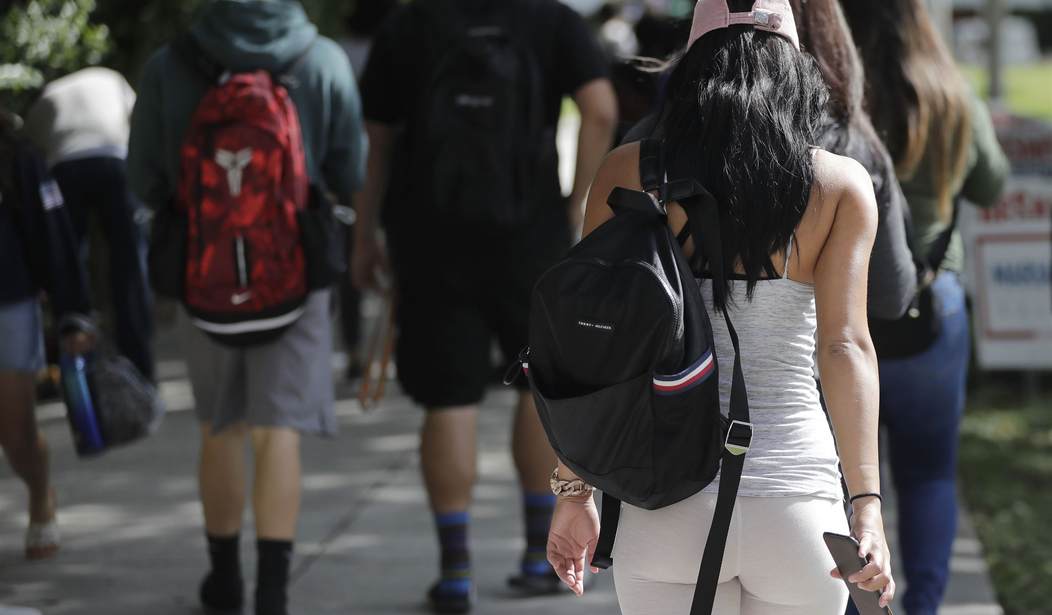Dulles, Virginia – Scott Zangas is in his junior year at the University of Pittsburgh, studying cyber security, but like most college students in America, he is doing so from home this semester. Scott’s father used to tell him to “hang on to your dreams.” It’s one of the few memories Scott has of his dad, Robert, a Marine who lost his life in Iraq 16 years ago. And the dream Robert had for his children, before he gave his life for our country, was that they would earn a college education that would help them realize their aspirations.
This week Freedom Alliance began our annual process of renewing college scholarships for nearly 500 students to whom we provide educational assistance. These scholarships will help students like Scott pursue their degree in the Fall semester, either on-line or on campus, depending on how their institutions respond to the coronavirus. But just as important, each scholarship honors the student’s parent who gave life or limb for our country.
Clearly, this has not been a typical spring semester. It was a major disappointment to students when they were told to pack up and go home in February and March. To be fair, it’s hard to fault schools for taking such drastic steps when the fear of community spread clashed with the reality of the dense population of students in classrooms, dorms and dining halls.
But since the initial decision to clear campuses, higher education trustees and administrators are sacrificing student interests and instead opting for self-preservation tactics, defending billion-dollar endowments, and instituting professor protection programs.
At Freedom Alliance, our scholarships are awarded to students like Scott – the sons and daughters of America’s military heroes. Their eligibility for our scholarship is the sacrifice their parent made for our country. Their parents lost limbs in vicious explosions. They lost motor skills as a result of traumatic brain injuries. They lost their lives defending us.
Recommended
No promise was made to these heroes – they didn’t need one. They put their faith in us, their fellow Americans, that their families would be cared for should something happen to them. And for those whose kids are now in college, a better job can be done on their behalf as institutions of higher education progress on the COVID-19 front.
First, online instruction has its limits and should be viewed only as a temporary fix. In an informal survey Freedom Alliance conducted with our scholarship students, 81 percent said online classes have been implemented at their school “for the remainder of the school year.” But for many, virtual classes are an unwelcome change. “I hate online classes,” one student said. Another confessed web-based courses “are making life miserable,” and a third reported, “online studying is causing stress.” These comments align with a College Reaction/Axios poll conducted in April which found that 77% of college students say distance learning “is worse or much worse than in-person classes.”
Students want a quality education and value for their investment. “I did not sign up for online curriculum for good reason,” a displaced student explained in our Freedom Alliance survey. “The lectures are harder to follow, and it seems like professors are going through the motions. I do not feel like I am receiving anywhere near the quality of education I would normally receive in a classroom setting.”
Second, the frustration of having to take lower quality online courses, is compounded by being charged full tuition for a lesser product. Taking classes from their parents’ living room doesn’t provide the campus experience they paid for like office hours, access to professors or teaching assistants, study groups, libraries and labs.
At least a quarter of Freedom Alliance’s 500 scholarship students have majors which require lab work – subjects like nursing, engineering, biology, and others. The loss of lab time frustrates their ability to learn.
Third, students are being denied refunds for campus housing from which they were forced out. Clearly, at universities across America, Business and Ethics Departments are failing to coordinate with one another. Schools won’t refund room and board fees because administrators treat them the same way Congress treats Social Security – as a Ponzi scheme – spending the fees on unrelated costs. Instead, schools should deposit room and board fees in a reserve or escrow account until the service has been provided.
COVID-19 is forcing change on college campuses. As schools implement these changes, they should give customer service a higher priority. Is that such a hard lesson for academics to learn?

























Join the conversation as a VIP Member